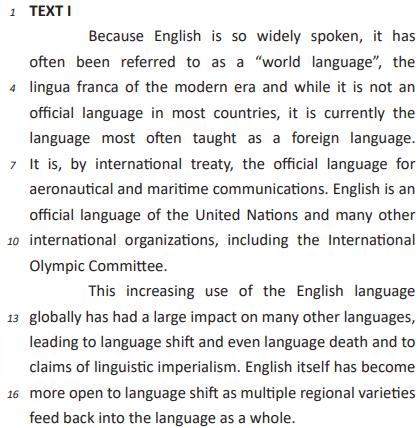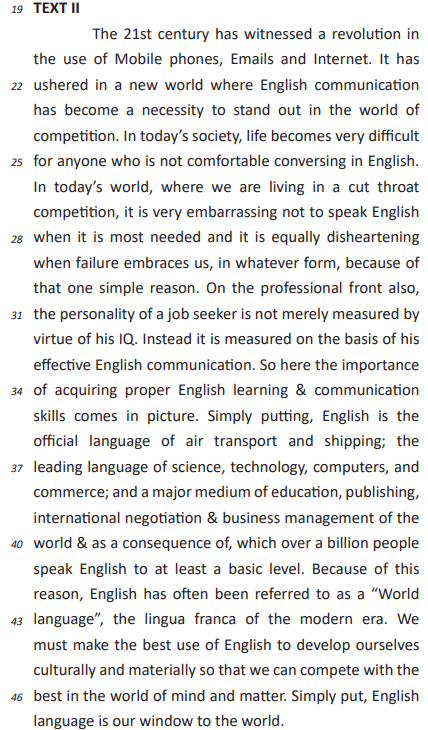READ THE TEXT AND ANSWER QUESTION:
Artificial intelligence and the future of humanity
Thinking and learning about artificial intelligence are the mental
equivalent of a fission chain reaction. The questions get really big,
really quickly.
The most familiar concerns revolve around short-term impacts:
the opportunities for economic productivity, health care,
manufacturing, education, solving global challenges such as
climate change and, on the flip side, the risks of mass
unemployment, disinformation, killer robots, and concentrations
of economic and strategic power.
Each of these is critical, but they’re only the most immediate
considerations. The deeper issue is our capacity to live meaningful,
fulfilling lives in a world in which we no longer have intelligence
supremacy.
As long as humanity has existed, we’ve had an effective monopoly
on intelligence. We have been, as far as we know, the smartest
entities in the universe.
At its most noble, this extraordinary gift of our evolution drives us
to explore, discover and expand. Over the past roughly 50,000
years—accelerating 10,000 years ago and then even more steeply
from around 300 years ago—we’ve built a vast intellectual empire
made up of science, philosophy, theology, engineering,
storytelling, art, technology and culture.
If our civilisations—and in varying ways our individual lives—have
meaning, it is found in this constant exploration, discovery and
intellectual expansion.
Intelligence is the raw material for it all. But what happens when
we’re no longer the smartest beings in the universe? We haven’t
yet achieved artificial general intelligence (AGI)—the term for an
AI that could do anything we can do. But there’s no barrier in
principle to doing so, and no reason it wouldn’t quickly outstrip us
by orders of magnitude.
Even if we solve the economic equality questions through
something like a universal basic income and replace notions of
‘paid work’ with ‘meaningful activity’, how are we going to spend
our lives in ways that we find meaningful, given that we’ve evolved
to strive and thrive and compete?
Adapted from https://www.aspistrategist.org.au/artificialintelligence-and-the-future-of-humanity/




